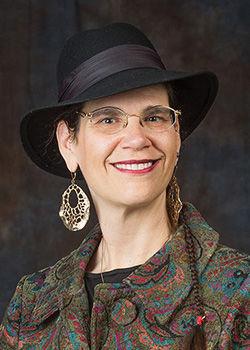The Shabbat before Purim is most famous for its name - Shabbat Zachor - the Shabbat of remembering. A month before Nissan we begin to read four additional Torah sections to prepare us for Pesach and all that the festival entails (yes, once Purim is over, Pesach cleaning begins...). Till this day, even though we no longer observe the laws of ritual holiness, we still read the section regarding the red heifer in two weeks time. But this coming Shabbat stands out in its proximity to Purim - Shabbat Zachor will always be the Shabbat prior to Purim.
Tradition teaches us that Haman was an offspring of Amalek, and therefore, we are asked to remember - Zachor - that there is an ongoing force that pursues and challenges us as we journey through life.
As goalposts for this journey I would like to juxtapose a well-known Mishna and our special Torah reading.
The Mishna, in the name of Akavia ben Mehalalel, offers us the following, to prevent us from getting spiritually lost: "Know where you come from and know to where you are going" (Avot/Teachings of the Fathers 3, 1)
Our special Torah reading asks of us: "Zachor / Remember what Amalek did to you on the way... do not forget" (D'varim/Deuteronomy 25: 17 -19).
I hope how you hear this echoing a similar narrative, when in the last verse of parashat Miketz, we are told: "Nevertheless, the chief butler did not remember Yoseph and he forgot him" (Breishit/Genesis 40:23)
Seemingly, we need to say that there is a difference between remembering and not forgetting, for otherwise the Torah would not make a point of reiterating this distinction!
Among the many questions we need to be thinking about are the following:
What is the relationship between "remembering" and "forgetting"?
Is it possible to forget but remember? Remember but forget?
Is the difference in details versus essence?
Is there an active element that is different when facilitating memory versus forgetfulness?
Does one of them impact oneself, while the second one impacts the other?
The Mishna in Avot offers a way to begin to unpack these questions. Could it be that in the parallel between the verses in the Torah and the sequence of the Mishna we are being taught that we come from what we remember and we go to that which we don't forget!
While there is an active element in both remembering and not forgetting I would like to pose a reading that Zachor / Remember is the legacy that we are born into - where we come from - telling us that we are born with memories, we are born with a story, a history; A story of our family, a different story of our people, and yet another story of the world that we were born into. In Rebbe Nachman of Breslov's tale "The Seven Beggers" each one of the seven beggars tells us how far back they remember - one remembers when his umbilical cord was cut, the other remembers learning Torah in his mothers' womb, the third when his body was being formed, the next when the seed was planted within the egg, all the way back till the last remembers before the seed was even created in his fathers' mind. We come into the world, so it appears, with memories to uncover.
This is the journey of our life - uncovering our stories / our memories, and creating new ones to transmit.
'Remembering' is our inheritance. 'Not forgetting' is our legacy.
What we actively assure that we don't forget are the deeds and actions of our life. What is it that we create with the inheritance instilled in us? How do we actualize the gifts that were bestowed? What life choices do we make to uncover all the gifts that we are? This is the tale of our legacy that we are commanded to not forget.
The story of Amalek, the voice of doubt, as our mystics have interpreted the notion of Amalek, is pursuing us as we exit our moments of Mitzrayim / our limitations, inhibitions and contracted consciousness. It is the voice that "asher kar'cha baderech" (D'varim/Deuteronomy 25: 18) - the voice that 'cools us off' (karchaderived from kar - cold) - chills our passion, says "no you can't, no you can't". It is the voice that says, 'everything is a coincidence, thus has no intrinsic value' (karchaderived from mikreh - coincidence). 'Amalek' is the voice that tells us - you may have an inheritance, but you will never succeed in creating a legacy.
Purim is an example of how a legacy is created. It bids us to hold on to a vision of redemption while in exile. It inspires holding on to a belief in a hidden and concealed God. It unfolds as life where so much is unknown. This is the response to the Amalek / Hamman.
Shabbat Zachor foreshadows Purim as our guide to understanding the essence of the day, the seizing of life as it manifests itself. This is also why the Zohar (the mystical Book of Splendor) tells us that Purim is the most holy day of the year, one that surpasses even Yom Kippur. It is a day that reveals not who we aren't or could've been, but rather, who we are becoming and how we manifest in the world.
This Shabbat asks of us to sit in the space of: "Know where you come from and know to where you are going". Its special Torah reading begins with the word 'Zachor' / remember, and concludes with the words 'Lo Tishkach' / do not forget. It is an invitation to remember that preparing for leaving our internal Mitzrayim / Egypt begins with remembering where we come from / what we have inherited from our past, and promising not to forget our ability to create where we are going to - the ultimate enactment of our legacy!

